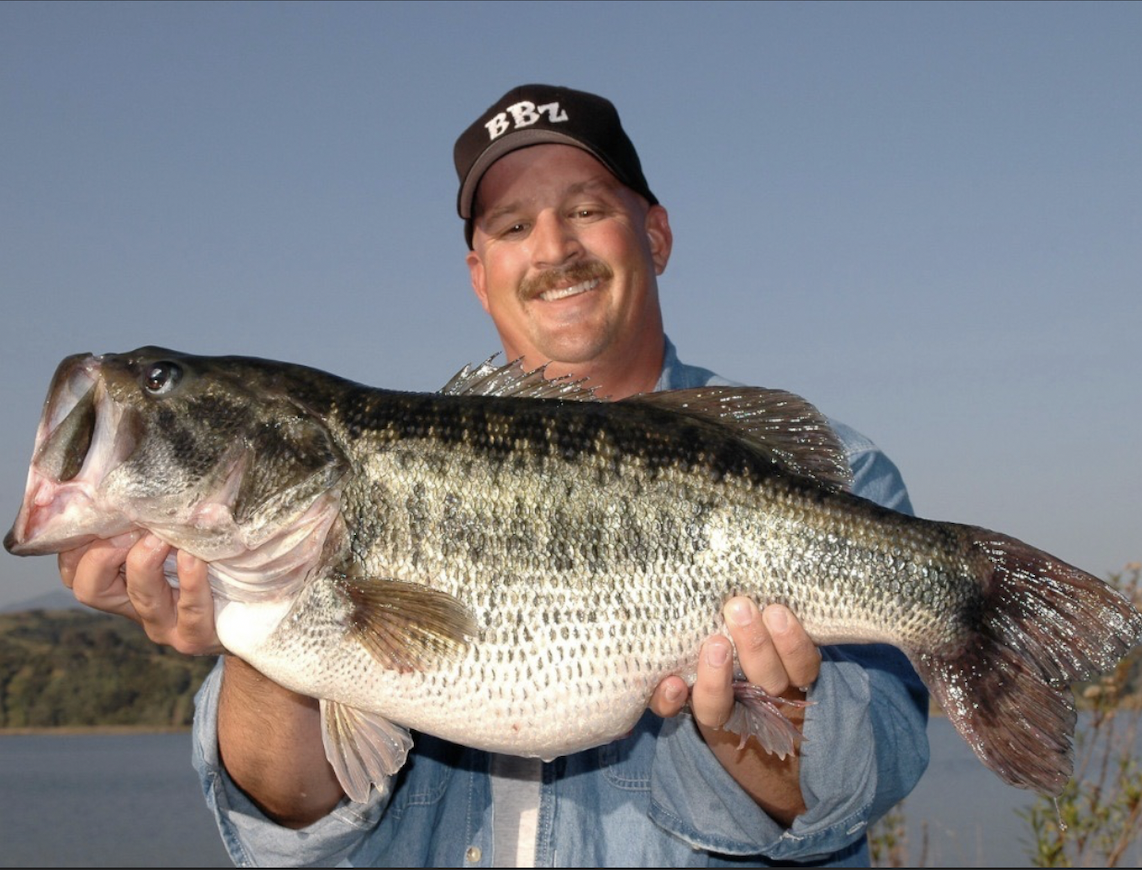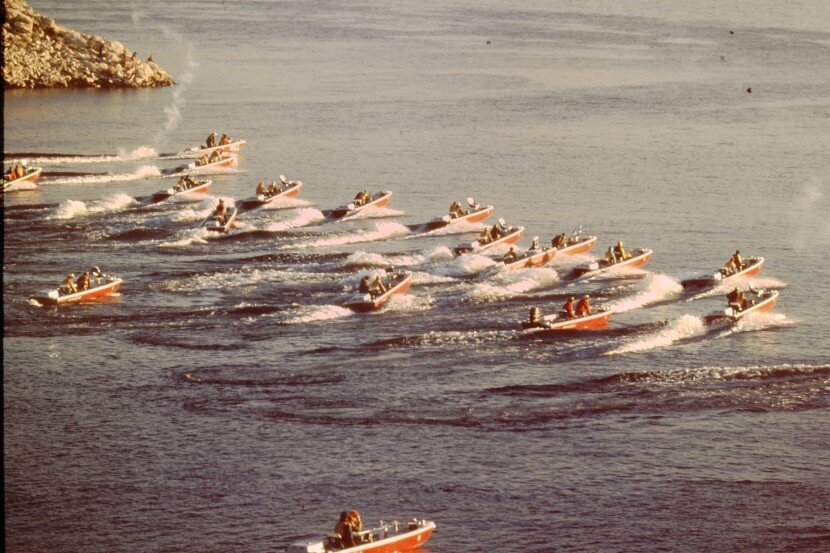Harold Sharp Recalls 1st Bassmaster Classic
Chattanooga’s Harold Sharp Recalls 1st Bassmaster Classic
The very first Bassmaster Classic held in October 1971 on Lake Mead on the Nevada-Arizona border.
The rules were also very different. When the 24 Classic contenders took off on a plane from the Atlanta airport, none of them knew where they were going. BASS founder Ray Scott didn’t tell them the ultimate destination until they were 10,000 feet in the air.
Chattanooga native Harold Sharp was there and remembers the historic event well.
“The Classic was designed for the press,” said Sharp. “BASS membership had slowed down after the initial surge when it was announced in 1968. Ray (Scott), Bob Cobb, me and Dave Newton in Las Vegas were the only ones who new the location in advance. We never had any doubts that it would work. We would decide to do something and Bob would send out a news release announcing it, then we would look at each other and say, ‘Now, how are we going to make it work.”
Sharp was Tournament Director for BASS for nearly two decades.
“We booked plane tickets and lodging under the names of ‘Male Hair Dressers Association,’ ‘Mutual Of Omaha Convention,’ ‘Ladies Garden Club,’ and the last (secret Classic) at Guntersville was a ‘Jimmy Carter Victory Celebration,” he said.
He said they had the help of Dave Newton with the Las Vegas Chamber of Commerce for the first 1971 event. He said the pretty girls on hand to meet the anglers and the press were Newton’s idea.
“After the Classic was over Dave came to work for BASS,” said Sharp. “Later he left to work for Hydro Sport Boats and passed away several years ago. He did a great job at BASS for many years.”
For the first six Classic competitions the anglers were never told in advance where they were going to fish. They were simply allowed to bring fishing rods and no more than ten pounds of lures. Of course that meant their boats had to be provided.
Sharp remembers one particular Classic on J. Percy Priest Lake in Nashville.
“I met the trucks delivering the Ranger boats at 2 am and led them to a vacant warehouse,” said Sharp.
It was a very clandestine meeting as Sharp said he would “blink his headlights” at the trucks as they exited the interstate.
“I took the drivers to a hotel to sleep for the night. The next day we showed them the railroad cars behind the warehouse and told them the boats would travel by rail the rest of the way, but we needed them to take them off the trailers and start assembling them as quickly as possible. As soon as the trucks were unloaded and boats assembled, we sent them back to Ranger believing we were going to take the boats somewhere else on a train.”
In 1971 the limit was ten fish per angler and at that time catch & release hadn’t occurred to them.
“Ray visited a trout event and saw the trout angler releasing their catch, and we quickly put together the catch and release plan,” said Sharp. “The first catch & release event was the following March 1972.
Of course aerated livewells hadn’t been invented. Sharp said that Alabama Game & Fish Director Sam Spencer explained how aerators added oxygen to the water.
“I went to a store and bought a small, round lawn sprinkler and mounted it upside down in the top of the livewell in our boat, than mounted a small bilge pump in the live well and a short hose connected to the lawn sprinkler,” said Sharp. “You filled the live well with water, turned on the bilge pump and the spray from the sprinkler boiled the water in the well with a zillion bubbles. I sent the anglers a drawing showing how to make one. A BASS member named Ray Coyle contacted me and said he and Don Butler wanted to start selling a kit to install in a well or cooler using my idea. I told him I hoped they made a fortune. Soon every boat was making them.”
A year-and-a-half after surviving a horrific car wreck, Bobby Murray won the very first 1971 Bassmaster Classic. Over the three-day event he brought 43 pounds and 11 ounces to the scales. Ray Scott wrote out the winner’s check to Murray for a $10,000. It was a winner-take-all tournament, so no one else made a dime.
Sharp said no one, even their families, could ever figure out where the first six Classics were going to be held until anglers were on the plane headed that way.
“After milking it for six years we decided it was worth more to announce it in advance,” said Sharp.
Now anglers can study the lake on the water, and on computers, for months in advance. Fans from around the world anticipate the event for weeks and various tourism officials across the country line up years in advance hoping they’ll get their chance to reap the marketing benefits a Bassmaster Classic brings, even if it is freezing.
Richard Simms http://twitter.com/sceniccityfish
Richard Simms is a professional journalist and fishing guide in Chattanooga. (See www.ScenicCityFishing.com) He is also a former wildlife officer for TWRA, a book author and a self-proclaimed "River Rat" with a sincere desire for spreading the message about our bountiful natural resources and the people charged with using, or protecting them.






